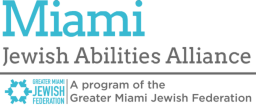AUTISM LINKS FOR NEWBIES AND ESTABLISHED FAMILIES ALIKE
Overview on prevalence:
- Data & Statistics on Autism Spectrum Disorder | CDC
- Autism Statistics and Facts | Autism Speaks
- Autism Data Visualization Tool | CDC
Start here and get connected to the University of Miami’s Center for Autism and Related Disabilities, your free to the user, life span partner:
- Why Become a Client | UM-NSU CARD | University of Miami
- Weekly Newsletter Sign-up Form | UM-NSU CARD | University of Miami
- Autism Friendly | UM-NSU CARD | University of Miami
All forms of Autism:
An article on how the language we use to describe autism impacts our perspectives and actions:
Autism and People of Color
- How does race impact people with autism? Read here for an article reviewing this important topic
- https://autismspectrumnews.org/autism-advocacy-advice-for-families-of-color/?mc_cid=d94b06fa9c&mc_eid=00d7c0ae99
Adults with Autism
- University of Miami Center for Autism and Related Disabilities Adult Services
- Daniel Jordan Fiddle Foundation for Adults with Autism
- Autism Speaks
- Toolkit for Adults from Autism Speaks What comes next
- Social Cog – a social skills organization for adults seeking social skills
Supporting people with Autism in the Workplace:
Differentiation in diagnosis and impact:
- https://www.autismspeaks.org/autism-diagnosis-criteria-dsm-5
- National Council on Severe Autism (ncsautism.org)
Tips on Wandering
- https://www.autismfl.org/wandering
- https://www.autismspeaks.org/wandering-prevention-resources
- https://sparkforautism.org/discover_article/tips-for-preventing-wandering/
Teaching Safety Skills to Children with Autism
Water Safety
Drowning is the #1 cause of death in autism and Florida leads the way in child drownings resulting in death. Kids with ASD are 160 times more likely to experience nonfatal and fatal drowning than their neurotypical peers. Please visit the Autism Society of Florida’s information page here:

.jpg)
Podcasts for Caregivers:
Genetic Research:
The Statistics
0%
of the population are affected by dyslexia
0%
of people with learning differences have dyslexia


.jpg)
